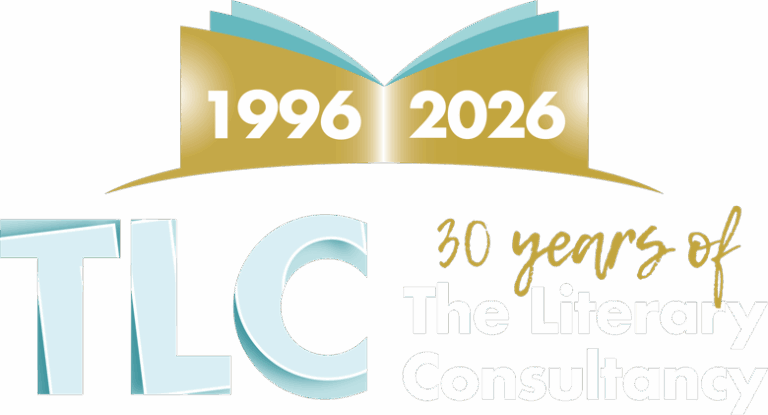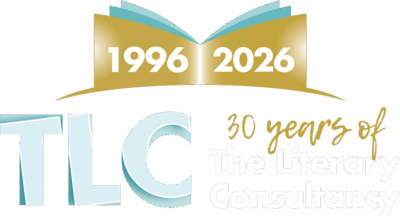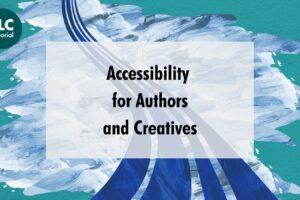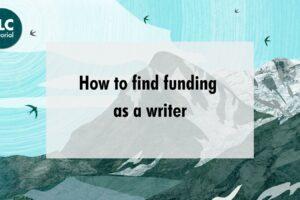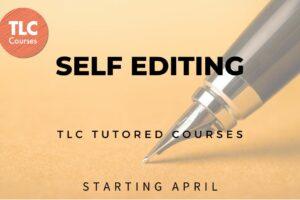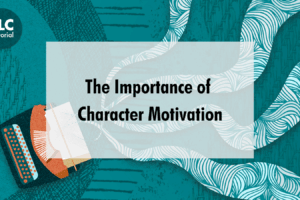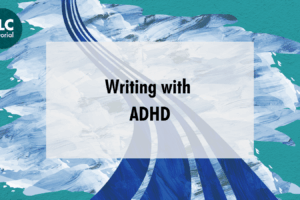How to facilitate accessibility for authors and creatives. Top tips in this TLC Guest Blog from Zara Bain, founder of AAT, a service that provides transcripts for digital content.
As the disabled founder and director of a transcription and closed-captioning company which prioritises creating work for people like me, I’ve seen first-hand the challenges that disabled, neurodivergent and chronically ill people face when accessing employment, education, or simply following their dreams of becoming a writer. Ableism is a barrier that many of us face daily, but this is a reminder that you’re not alone.
I want to start with the caveat that by “accessibility” I don’t mean public access or widening participation. I mean disabled access—in other words, levelling the playing field for people with disabilities by eliminating or reducing disability-related barriers. Some progress has been made: the Publishers Association found that the representation of people with a disability or long-term health condition has increased from 2% in 2017 to 16% in 2022. But this is still a long way off the 1 in 4 of us that is disabled.
Top Tips for improving access when writing
In my life outside of my business, Academic Audio Transcription (AAT), I’m a published academic author and a PhD researcher. Writing can be lonely, and navigating practicalities and identity around illness and disability can be isolating. So here are some ways to make things a little easier for yourself:
- Find your people. For AAT, our Twitter (we’ll never call it X) community has been a lifeline. Finding ways to connect with like-minded people who share some of the challenges that you face can be invaluable—especially if your physical or mental health makes ‘being in the room’ complicated or even, sometimes, impossible. As well as social media, with BlueSky and Threads standing out as places where authors and academics have flocked to, there are online writing spaces like Being A Writer, or the disabled and chronically ill writers peer support group run in partnership with the Society of Authors, that can help you feel part of a community.
- Find your method. Some people like paper and pen, others prefer a laptop, and some don’t “write” at all. Whatever works for you, works for you—even if it can take some trial and error to discover what that is. At AAT, we support authors who prefer to dictate their work by providing them with publisher-ready transcriptions. Dictation can be a great way to make writing more accessible, whether you struggle with screens due to migraine, can’t type fast or frequently because of arthritis, or think through writing better orally than in text because of dyslexia. You’re a writer because you’re a wordsmith, not a typist or someone with beautiful handwriting—and don’t you ever forget it.
- Give yourself grace. Navigating an ableist world is hard and, for some of us, just being in our bodies can be exhausting, even before we’ve tried to persuade the world to work the way we need it to. We can often feel pressured to conform, sometimes at a real risk to our wellbeing. Even though it can be really hard—and the world doesn’t make it easier—please try to be patient with yourself, and try to find rhythms and flows that support you to do that, and which nourish you while you do. Because AAT prioritises working with disabled, chronically ill and neurodivergent professionals, we build flexibility and an access-first culture into everything we do. Meanwhile, give yourself the gift of looking up the concepts of ‘crip time’, along with ‘internalised ableism’.
- Self-Advocate when you can. In an ideal world, structural barriers and problematic attitudes around disability, chronic illness, mental illness and neurodivergence wouldn’t exist. The frustrating truth is that sometimes you’ll only achieve access if you ask for it. I won’t pretend there aren’t fraught issues around self-advocacy, from disclosure and stereotyping to it being just plain exhausting—and not a guaranteed success, after all that. I’ve cycled through phases of being assertive with access requests to refusing invitations because I’m just so tired of it taking three weeks of emails to get nowhere. But to the extent that you’re able, advocating for yourself and your needs can be crucial. Some great recent approaches include sharing a Manual of Me style document upfront; others prefer a conversation. Find a way that’s comfortable for you and don’t be afraid to take up space (if you’ve got the energy to do so).
Creating accessible content for your audiences
Access goes both ways, and it’s just as important to consider your audiences’ access needs when you create content.
Accessible design. We all say to not judge a book by its cover but, let’s be honest, we do. There are important design principles around accessibility covering everything from the font face and size of your text to the colour contrast and image composition on your cover. If you’re ready to put your work into the world (congratulations!) please take a second to consider the visual design of what you create.
Transcribe your podcasts. This is a big one for us at AAT. One of our team members loves reading but is unable to due to their disability, so it’s podcasts for them. But another team member with an audio processing disorder struggles to listen to audio content. So few podcasts are transcribed, but a podcast transcript might just unlock new audiences you didn’t know you were missing—as well as providing text-based versions of your insights to support SEO on the web. The case is so strong that Apple is about to introduce automated AI-produced transcripts for many of its listed podcasts. At AAT, we don’t use AI at any point in our process and have been receiving inquiries from podcasters, authors, and experts concerned about the IP issues, inaccuracies, and failure to adhere to accessibility principles that come with AI-based solutions.
Looking for an accessible podcast that’s made for writers? We are proud to include downloadable transcripts with all of our Being A Writer podcast episodes.
Audiobooks for independent authors. We know that not everyone has the capacity or resources to publish and immediately work on an audiobook, but the sooner you can, the better. This goes back to our team member, and the thousands of people across the UK, who prefer audiobooks (think busy parents, people with dyslexia, those with a long car commute, or people with arthritis who might not be able to hold a book for long periods). Audiobooks are a great way of ensuring that they can access and enjoy your work, and be captivated by the joy of a good story whatever the medium, and whatever their access needs.
Caption and transcribe your promo events. We know that a really important part of publishing your work is promoting it to potential audiences, often through book readings, panel talks and interviews. Organisers are increasingly providing real-time speech-to-text captioning for live events, whether live or remote, and that’s a fantastic development. While we don’t offer real-time captioning at AAT, we regularly support academics, authors and organisations with creating closed captions and transcripts for events, with a mix of pre-recorded video captioning and post-event captioning and transcription—especially since real-time captions, including automated ones, aren’t edited as standard. While not everyone is established enough to make accepting event invitations conditional on a kind of ‘accessibility rider,’ asking about remote access, online post-event availability, captions and transcripts is a great way to start a conversation about accessibility.
Want to learn more? Academic Audio Transcription Ltd can help
If you’d like to know more about how closed captions and transcription services might support your work, our team at Academic Audio Transcription would love to learn more about your project and explore how we might be able to help.
Send an email to for a free, no-obligation quotation, and/or visit http://academicaudiotranscription.com for more information.
